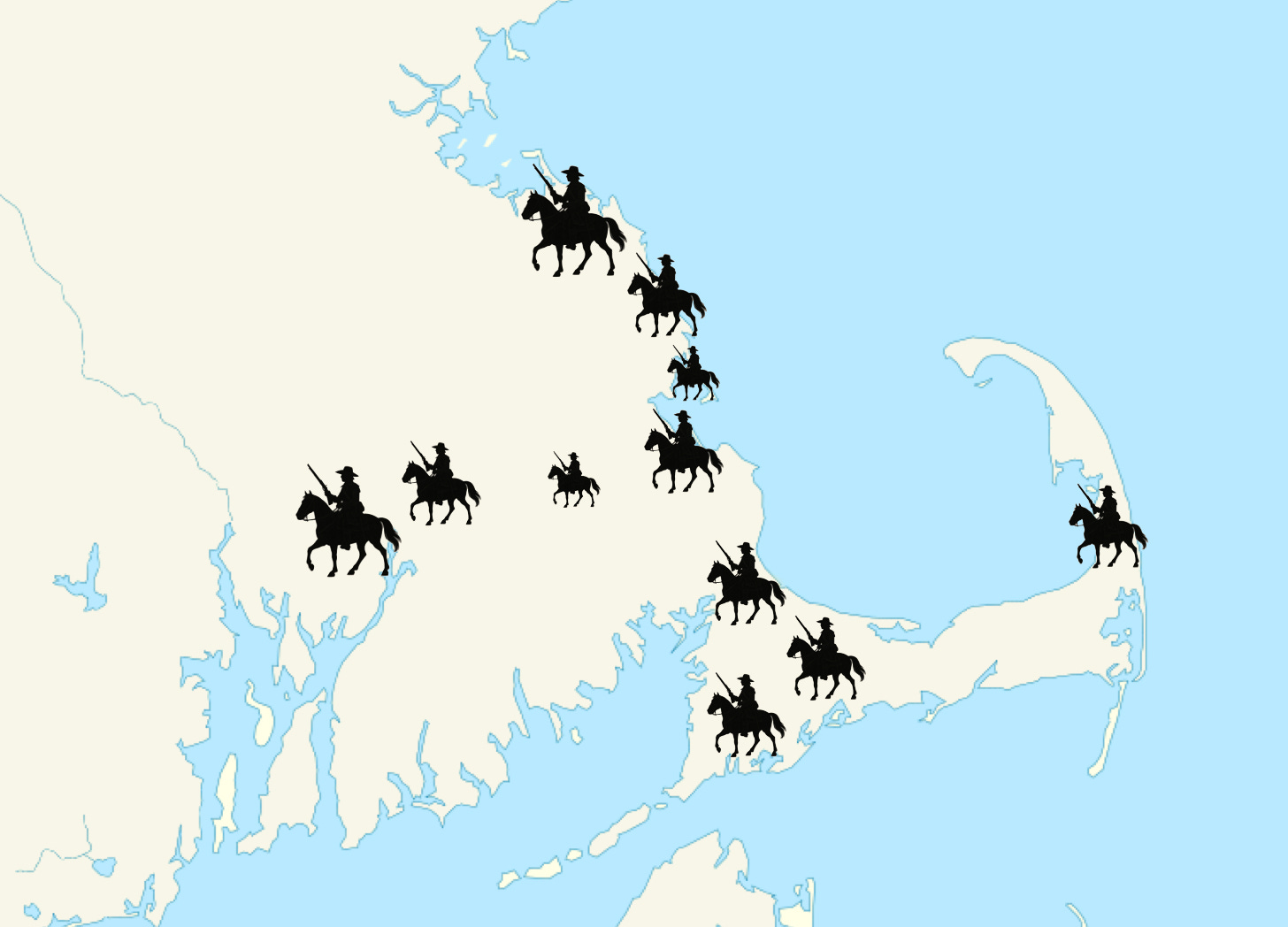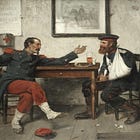
In 1658, the General Court of New Plymouth passed a law that required the towns of the colony to provide men, horses, and tack needed to create a troop of horse. Thus ordinance called upon each of the largest communities (Scituate and Rehoboth), to provide four mounted men, each of the smallest settlements (Bridgewater and Duxbury) to supply a pair of troopers, and each of the remaining municipalities to contribute three horse soldiers. Four years later, another act authorized the senior military officer of New Plymouth, to recruit fifteen additional men for this new unit, thereby raising the strength of the unit from thirty-three to forty-eight.
Like other peacetime defenders of New Plymouth, the men of the troop served on a part-time basis, wore no uniforms, and owned the weapons that they carried. In addition to this, the mounted militiamen provided the horses that they rode and any special equipment that they might need. In exchange for their service, the troopers of New Plymouth enjoyed freedom from normal guard duty and an exemption from the tax that the colony levied on horses.
In June of 1672, the General Court divided the troop into three squadrons, each of which was to be commanded by an officer responsible for keeping lists of the members and ensuring that every trooper maintained a suitable horse, suitable weapons, and a suitable set of saddlery. At the same time, it threatened any trooper who failed to obtain a carbine during the year to come would be obliged to ‘return into the foot company where he dwells’.
The following year, the General Court increased the strength of the troop to sixty. Three years later, however, it disbanded its only unit of mounted men. In justifying this decision, which it made well after the start of King Philip’s War, the legislators pointed to the chronic reluctance of troopers to provide themselves with carbines.
The shortage of enthusiastic horse soldiers may well have been exacerbated by the recent formation, by the United Colonies of New England, of a force of one thousand volunteers, half of whom served on horseback, and all of whom had been promised both bounties for the capture of hostile Indians and the right to keep ‘the plunder and spoil by them lawfully taken’.
In setting the conditions for the enlistment of mounted men, the commissioners of the United Colonies avoided problems associated with carbines by styling the troopers as ‘dragoons’ and mandating that they carry ‘long arms’.
Sources:
Frances Baylies An Historical Memoir of the Colony of New Plymouth (Boston: Wiggin and Lunt, 1866) Part II, pages 102-104 and Part III, pages 80-81
David Pulsifer (editor) Records of the Colony of New Plymouth in New England, Laws: 1623-1682 (Boston: William White, 1861) page 182
For additional articles about the military institutions of the people we call ‘the Pilgrims’ …
For more about The Tactical Notebook …






